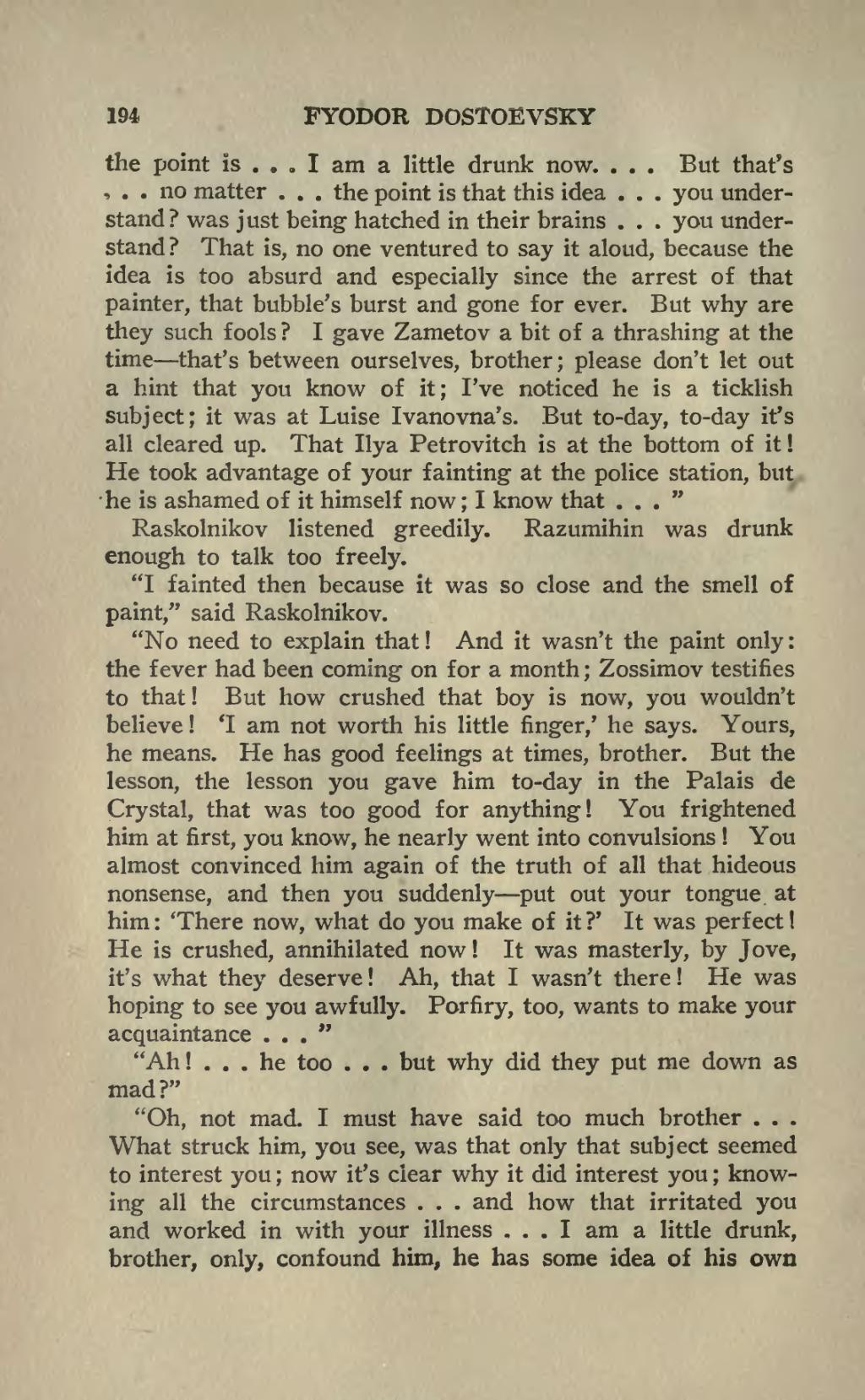the point is . . . I am a little drunk now. . . . But that's . . . no matter . . . the point is that this idea . . . you understand? was just being hatched in their brains . . . you understand? That is, no one ventured to say it aloud, because the idea is too absurd and especially since the arrest of that painter, that bubble's burst and gone for ever. But why are they such fools? I gave Zametov a bit of a thrashing at the time—that's between ourselves, brother; please don't let out a hint that you know of it; I've noticed he is a ticklish subject; it was at Luise Ivanovna's. But to-day, to-day it's all cleared up. That Ilya Petrovitch is at the bottom of it! He took advantage of your fainting at the police station, but he is ashamed of it himself now; I know that . . ."
Raskolnikov listened greedily. Razumihin was drunk enough to talk too freely.
"I fainted then because it was so close and the smell of paint," said Raskolnikov.
"No need to explain that! And it wasn't the paint only: the fever had been coming on for a month; Zossimov testifies to that! But how crushed that boy is now, you wouldn't believe! 'I am not worth his little finger,' he says. Yours, he means. He has good feelings at times, brother. But the lesson, the lesson you gave him to-day in the Palais de Cristal, that was too good for anything! You frightened him at first, you know, he nearly went into convulsions! You almost convinced him again of the truth of all that hideous nonsense, and then you suddenly—put out your tongue at him: 'There now, what do you make of it?' It was perfect! He is crushed, annihilated now! It was masterly, by Jove, it's what they deserve! Ah, that I wasn't there! He was hoping to see you awfully. Porfiry, too, wants to make your acquaintance . . ."
"Ah! . . . he too . . . but why did they put me down as mad?"
"Oh, not mad. I must have said too much, brother. . . . What struck him, you see, was that only that subject seemed to interest you; now it's clear why it did interest you; knowing all the circumstances . . . and how that irritated you and worked in with your illness . . . I am a little drunk, brother, only, confound him, he has some idea of his own
